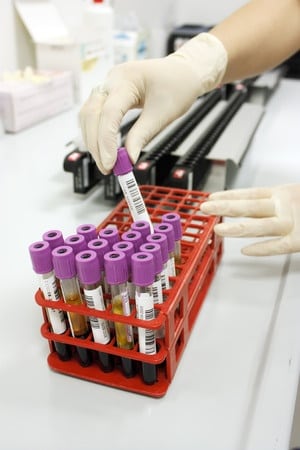 You’ve always known your age chronologically speaking but chances are that you may not be aware of the age of your body, commonly termed as ‘biological age’. Biological age of a body defines the exact state of your health vis-à-vis your age in terms of the number of years you’ve spent on this lonely planet. There are some telltale signs that act as parameters for determining the body’s age and markedly indicate whether your numerical age is more or less than the body’s actual age.
You’ve always known your age chronologically speaking but chances are that you may not be aware of the age of your body, commonly termed as ‘biological age’. Biological age of a body defines the exact state of your health vis-à-vis your age in terms of the number of years you’ve spent on this lonely planet. There are some telltale signs that act as parameters for determining the body’s age and markedly indicate whether your numerical age is more or less than the body’s actual age.
If you’re between 30 and 35, and your skin has already developed wrinkles, the hair has started graying, and the forehead is marked with age lines, then your cellular age exceeds the numerical age. You’ve come across and met several individuals in your lifetime who’ve appeared to be much younger than what their ages actually might have been. Now you know that they looked younger than their ages and in the pink of their health because their body’s age was much less than their age in chronological terms.
Biological age, as it turns out, is a better indicator of one’s health and wellbeing compared to chronological age. The closer your cellular age is to the age according to your birth-certificate and vice versa, the healthier you’re. Demographers and researchers in Sweden’s Uppsala University have formulated a simple but unique blood test, the findings of which they claim will help determine the biological age of an individual’s body.
People with higher biological ages (compared to their ages in actuality) were more likely to be stricken with ailments of the heart, lungs, liver, kidneys, and other visceral organs. The blood tests were carried out in Uppsala University to actually establish the effects of different lifestyle determinants including foods, stress levels, and workouts had on the rate of one’s biological or cellular ageing.
For conducting the study, researchers collected and analyzed 77 distinct plasma proteins of 976 blood samples collected from participants aged between 20 and 50. Furthermore, participants answered questionnaires relating to lifestyle habits like drinking coffee, smoking, consuming fatty and or processed foods, and so on. Analysis of plasma proteins enabled the researchers to accurately determine biological age as well as an individual’s weight, height, and circumference of the girth. These analyses also helped them to directly link the aging rate of the body with the abovementioned lifestyle habits. For instance, an individual’s rate of cellular aging increased with smoking or alcohol consumption. On the other hand, regular exercises coupled with sticking to a balanced diet considerably slowed down the process of biological ageing.
When the results of the study are corroborated and published in health journals, physicians, dieticians, and nutritionists will be able to correctly guesstimate one’s biological age using profiles of plasma proteins. Health professionals, by reviewing plasma proteins will be in a position to guide their patients to follow lifestyle programs that’ll let them check their biological age periodically. And once, people are able to keep a tight lease on the rate of growth of their cellular age, they’ll be automatically able to delay the onset of several lifestyle disorders.
Image credit: Antonio Truzzi
